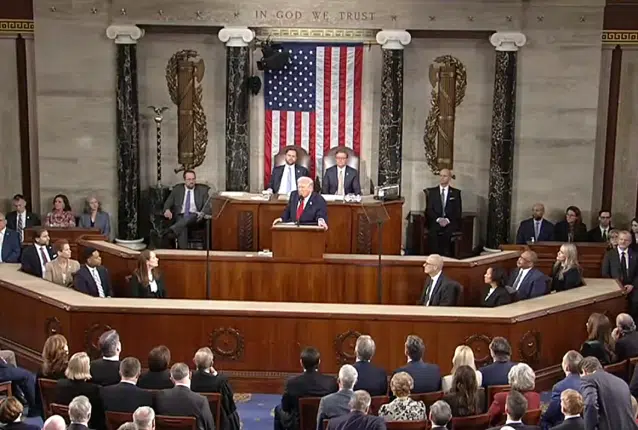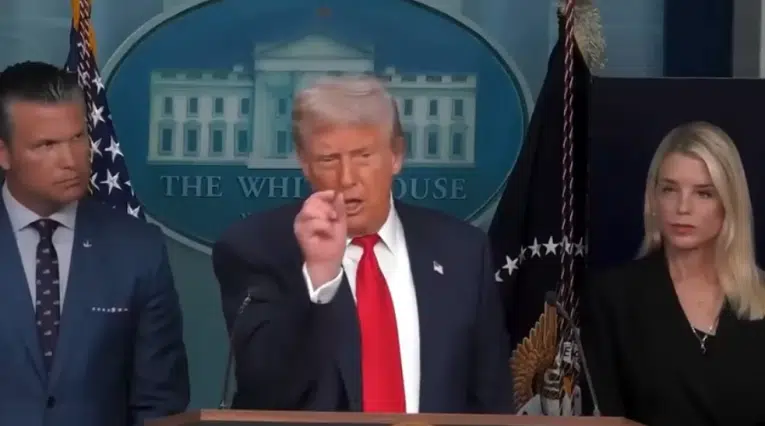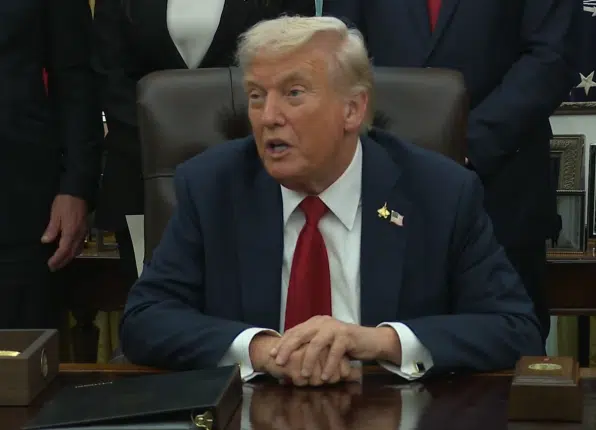In Pennsylvania, where former Vice President Joe Biden leads President Donald Trump in current counting in the race for 2020, it is still not known how many of the ballots were received after 8 p.m. on Election Day — the state law imposed deadline for submitting ballots.
Under Pennsylvania law, it states unambiguously, “No absentee ballot under this subsection shall be counted which is received in the office of the county board of elections later than eight o’clock P.M. on the day of the primary or election.”
Sadly, the Pennsylvania Supreme Court arbitrarily extended that deadline to Nov. 6 at 5 p.m., in violation of state law, and then the U.S. Supreme Court kicked the can down the road, apparently hoping that it would not matter in the presidential contest.
Here’s the problem.
The ballot deadline extension was never only going to affect the race for President — it was always going to affect every House of Representatives race in Pennsylvania, and every other local race or initiative that was on the ballot.
What a short-sighted decision by the Chief Justice John Roberts-led Supreme Court.
In the House, right now it looks like Democrats will lose by about 14 net seats based on who’s leading, down to just 219 votes, barely a majority. But in three races, Pennsylvania’s 17th Congressional District, the race is too close to call, and there’s no telling if the races for the 7th and 8th Congressional Districts, which are kind of close, were unduly impacted by this lawless action.
Democrats are leading all three races. If they lose two, that would probably mean Republicans win 218 House seats and reclaim the majority.
Now, the Trump campaign has once again petitioned the Supreme Court to overturn this lawless action.
There is no question that the nation’s highest court should take up this case, brought by the Republican Party of Pennsylvania, which states, “Given the results of the November 3, 2020 general election, the vote in Pennsylvania may well determine the next President of the United States—and it is currently unclear whether all 67 county boards of elections are segregating late-arriving ballots. Thus, without an immediate order from this Court, RPP could lose its right to ‘a targeted remedy’ ‘if the State Supreme Court’s decision is ultimately overturned.’”
Here, the Pennsylvania GOP is referring to the response by Justice Samuel Alito to the original writ for certiorari, stating, “the Court’s denial of the motion to expedite is not a denial of a request for this Court to order that ballots received after election day be segregated so that if the State Supreme Court’s decision is ultimately overturned, a targeted remedy will be available.”
And now, Alito has ordered the Commonwealth to segregate the late mail-in and any morning after ballots ballots, noting, “neither the applicant (PA GOP) nor the Secretary has been able to verify that all boards are complying with the Secretary’s guidance, which, it is alleged, is not legally binding on them.”
Article I, Section 4 of the U.S. Constitution states, “The times, places, and manner of holding elections for senators and representatives, shall be prescribed in each state by the legislature thereof…”
And that is exactly what the Pennsylvania legislature did when it adopted the statute, which remains unamended. The Commonwealth’s Supreme Court acted lawlessly to assume the constitutional powers of the Pennsylvania legislature.
This is a straight-up “say what the law is” case for the Supreme Court with the newly seated Justice Amy Coney Barrett, who under no circumstances should recuse herself, no matter what the Washington, D.C. establishment says.
Now, it is possible Trump will lose the contest for the White House even with the late mail-ins, but the case still matters a whole lot in those House seats, which could potentially wrest control of the House away from House Speaker Nancy Pelosi (D-Calif.) and make former Vice President Joe Biden a lame duck on day one.
The Constitution has been blatantly violated by the Pennsylvania Supreme Court and then the Supreme Court, in punting the case when it is supposed to hear “all cases, in law and equity, arising under this constitution.”
Well, the “times, places, and manner of holding elections” arises under the Constitution. The consequences of not curing this defect now will have reverberations, not just in the contest for 2020, but in every election.
The Supreme Court must act, even if it won’t change the outcome for the White House.
The case is still ripe. It could very well determine the majority in the House of Representatives, and with the Senate up in the air — and Biden threatening to pack the Supreme Court by abolishing the Senate filibuster and amending the Judiciary Act of 1869 — this case could change the course of American history.
Or, it might not change the outcome of those House races at all. But we’ll never know if illegally cast ballots, those received after 8 p.m. on Election Day, are allowed to be counted.
This comes down to whether the rule of law can be changed arbitrarily in an election. Electoral integrity begins and ends with ensuring equal protection of the laws so that the same rule, the one prescribed by the state legislature, applies to everyone. That should be the beginning and the end of the Supreme Court’s inquiry.
The late ballots must be thrown out. There is simply too much at stake. And God save America if they were not properly segregated and the court has to order a new election in Pennsylvania. This is not just about the presidency. There’s even more at stake. This could ultimately determine whether we have Democratic one-party rule or not.
Robert Romano is the Vice President of Public Policy at Americans for Limited Government.







